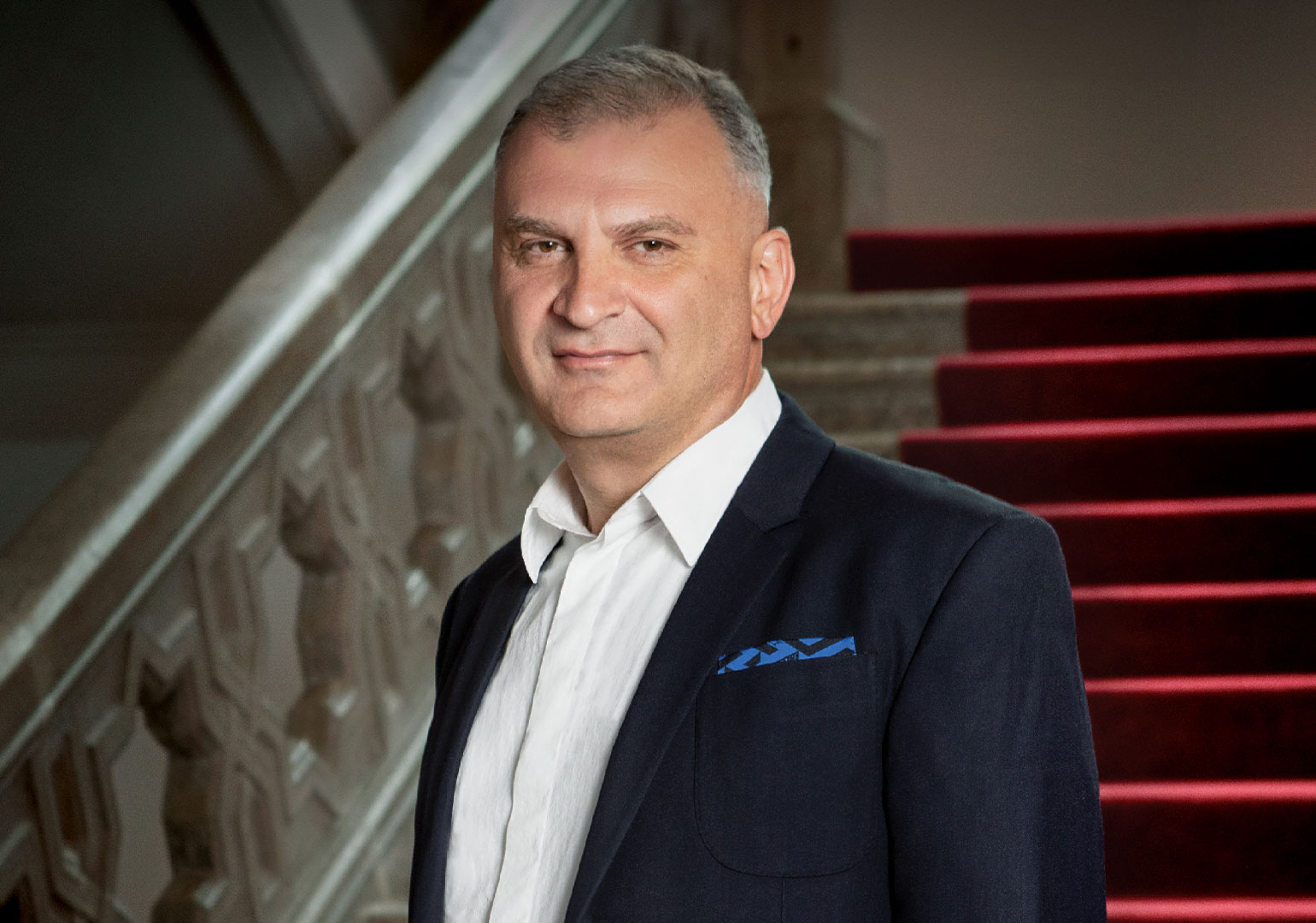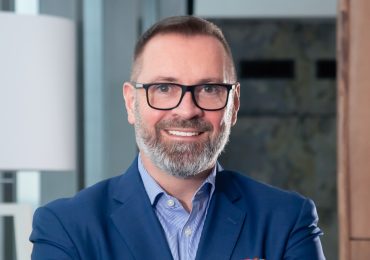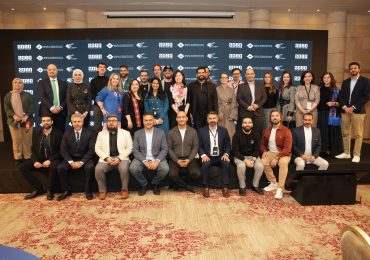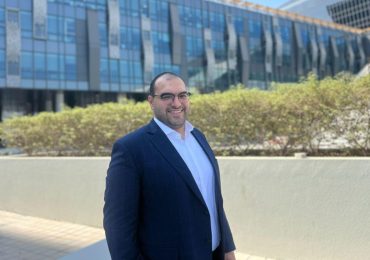With new campuses, unique educational programs, and a broad network of international partnerships, Kakha Shengelia and his Caucasus University team are preparing for global expansion.
Kakha Shengelia’s 25 years of work have resulted in 207 partner universities in 61 countries, which is a strong foundation for Caucasus University’s strategic goal of internationalization.
These numbers reflect the current picture, but the story starts much earlier with different figures. In 2000, the Caucasus School of Business (CSB) only had one education program and ten students. That is when Kakha Shengelia took over as school dean.
CSB was established with the financial backing of the U.S. government and in partnership with Georgia State University. This was the first critical step in implementing Western educational approaches, knowledge, and standards in Georgia, and CSB has followed this course ever since.
Caucasus University, a rapidly expanding institution, now encompasses 11 schools and hosts 10,000 students from various nationalities. The management team, led by Kakha Shengelia, is poised to extend its educational activities on a global scale.
Our discussion took place at the Tbilisi campus of Caucasus University (CU) on Saakadze Street. While some may find it unusual to describe the historical school building this way, CU is on the verge of establishing new campuses in several cities in Georgia and abroad. This is a vital part of the global strategy that will significantly affect CU’s development trajectory.

According to Kakha Shengelia, the decision to expand was a logical continuation of more than two decades of work. On a personal level, he was the President of the International Association of University Presidents. Mr. Shengelia is the chairperson of the Board of Directors at the IAUP. “This is a tremendous achievement and honor for me. These positions have never been held by an Eastern European before,” Mr. Shengelia states, adding that leadership of the organization, whose members include rectors from 900 universities, is both a challenge and a source of numerous opportunities.
Our conversation once again turns back to the university’s early years. The initial measures were aimed at the rapid development of the partnership network. To this end, the Caucasus School of Business joined numerous international organizations and associations. CSB’s main competitor at the time chose a different path and focused on the domestic market. That is how Kakha Shengelia explains his school’s current competitive advantage. He says Caucasus University enjoys significant recognition in Europe and the United States.
“We were always aware that Georgia is a small country, and focusing on the local market would not be enough,” Kakha Shengelia explains. From the outset, his goal was to become the president of a large international organization, and he did.
The unique educational programs offered by Caucasus University reflect the institution’s ability to effectively implement international practices on the Georgian market.
Years ago, the joint MBA program of the Caucasus School of Business and the Grenoble Ecole de Management was one of the first of its kind in Georgia. Today, Caucasus University still leads the way in offering joint BA and MBA programs and the most comprehensive selection.
During the interview, Kakha Shengelia highlighted the three-year BA programs that offer diplomas from two universities. One such program involves a partnership between CU and the Rennes School of Business. Students spend the first two years studying in Georgia and the final year in France. Another three-year program on cyber security was developed by highly qualified academics from Georgia and abroad and is offered jointly by Caucasus University and New Jersey City University (NJCU). In this case, students spend the first five semesters in Georgia and the sixth semester in New Jersey.
“We are proud of the fact that our partner in the cyber security program is an institution such as New Jersey City University, which has federal rights in matters of intelligence and cyber security,” Kakha Shengelia states, adding that NJCU has the broadest profile among all the colleges in the state of New Jersey.
In the field of technology, Caucasus University offers a three-year BA program in computer science in partnership with Fairleigh Dickinson University (FDU) in the United States. The first two years of studies are conducted in Georgia, and the final year is in New Jersey – the ABET-accredited FDU functions as the National Security Agency’s cyber security center.
The list of double-degree, three-year BA programs highlighted by Kakha Shengelia also includes the AASBC and TedQual-accredited bachelor’s degree program in hospitality management, which was developed in partnership with FDU. Studying one of the world’s most sought-after professions in Georgia is currently only possible at Caucasus University. Georgian and foreign professors are actively involved in teaching this program in accordance with modern standards.

“I can confidently say that nobody was more proactive than us in using this legislative innovation, and so we became the first institution to offer three-year BA programs in Georgia,” Kakha Shengelia states. Explaining the advantages of these educational programs, he points out that students can obtain two internationally recognized diplomas in three years with a lower financial burden. Furthermore, the teaching is focused on a specific profession and includes one or two semesters abroad at a leading European or American university.
Besides the double-degree BA and joint MBA programs, Caucasus University has offered English-language bachelor’s, master’s, and doctoral courses for many years. CU is one of Georgia’s leading institutions regarding its number of international students.
Kakha Shengelia tells us that the quality of the programs is reflected in the growing demand from students and the universally recognized international accreditations of these programs and CU’s partner colleges. The Caucasus School of Business became a member of AACSB in 2016 and started the accreditation process two years later. CSB is now in the final stages of acquiring AACSB accreditation. Kakha Shengelia promises that this will completely transform the standard of business education in the country and the wider region.
Listing some of CU’s achievements, Kakha Shengelia highlights the international TedQual certificate that the school obtained from the World Tourism Organization in 2020, the Central and East European Management Development Network (CEEMAN) accreditation, and the unconditional accreditation granted to CU’s Bachelor of Architecture program by the Royal Institute of British Architects (RIBA). “Our Bachelor of Architecture program is the first and only one of its kind in Georgia to receive such recognition,” Mr. Shengelia insists.
The expansion of the range of educational products on offer is naturally linked to the development of the appropriate infrastructure inside the country. Construction of CU’s ultramodern Batumi campus is currently ongoing. Once completed at the end of 2024, it will be one of the largest university campuses in the Black Sea region.
“The opening of the Batumi campus and the general education school Caucasus Academy will be a major achievement for me. I believe that higher education in the country’s second-largest city should be competitive,” Kakha Shengelia says, emphasizing the importance of regional development in Western Georgia. Together with the existing education programs, CU will offer courses for prospective sailors in Batumi.

Construction of the Caucasus Academy of Gastronomy in Gurjaani is also proceeding rapidly. The project, which is being implemented with the support of the Basque Culinary Centre and the Ministry of Education, Science and Youth of Georgia at a cost of H17 million, will be completed towards the end of the year. The facility will start receiving students soon afterward.
Growing demand from international students has also created the need for an additional campus in the capital. This new facility will already be operating by the start of the next academic year. In addition, CU is working on the university hospital and student halls of residence projects.
Parallel to developing the educational network and infrastructure within the country, Caucasus University is also actively working on its global expansion strategy. CU has already obtained the license for its new training center in Dubai, which will officially start providing educational services in late spring. According to Kakha Shengelia, this is a significant step towards the goal of opening a fully-fledged campus in Dubai. In addition, CU is about to conclude the feasibility study to determine the form of its representation in the Uzbek capital, Tashkent.
In the wake of CU’s global expansion strategy, Kakha Shengelia’s ambitious task is to convince young people who want a high-quality education to remain in Georgia: “We often hear people ask why their children should study in Georgia when they can be sent abroad. Trust me, our higher education is now as good as anywhere else.”
The president of Caucasus University insists that Georgian higher education has caught up with the leading European, American, and Asian systems in terms of quality and knowledge. As for the need to obtain international experience, Kakha Shengelia points out that there are numerous opportunities, such as exchange programs, joint educational programs, and other projects, that allow students to spend one or several semesters abroad.
Towards the end of our conversation, we asked Kakha Shengelia if he would feel satisfied once the goals mentioned above were achieved. “Satisfaction is not a feeling that I am looking for,” he responds. “Once you feel satisfied, you stop developing. I seek to develop and learn every single day. If I ever feel I can no longer develop, I will know it is time to retire.”
Despite this response, we ask Mr. Shengelia to share his long-term objectives regarding Caucasus University. His answer is ambitious, but considering his experience, it is not unrealistic: “Caucasus University must be number one in all of Eastern Europe, ahead of its counterparts in Georgia, Azerbaijan, Armenia, Ukraine, Russia, Romania, Bulgaria, Turkey, and any other country in the region.”

















